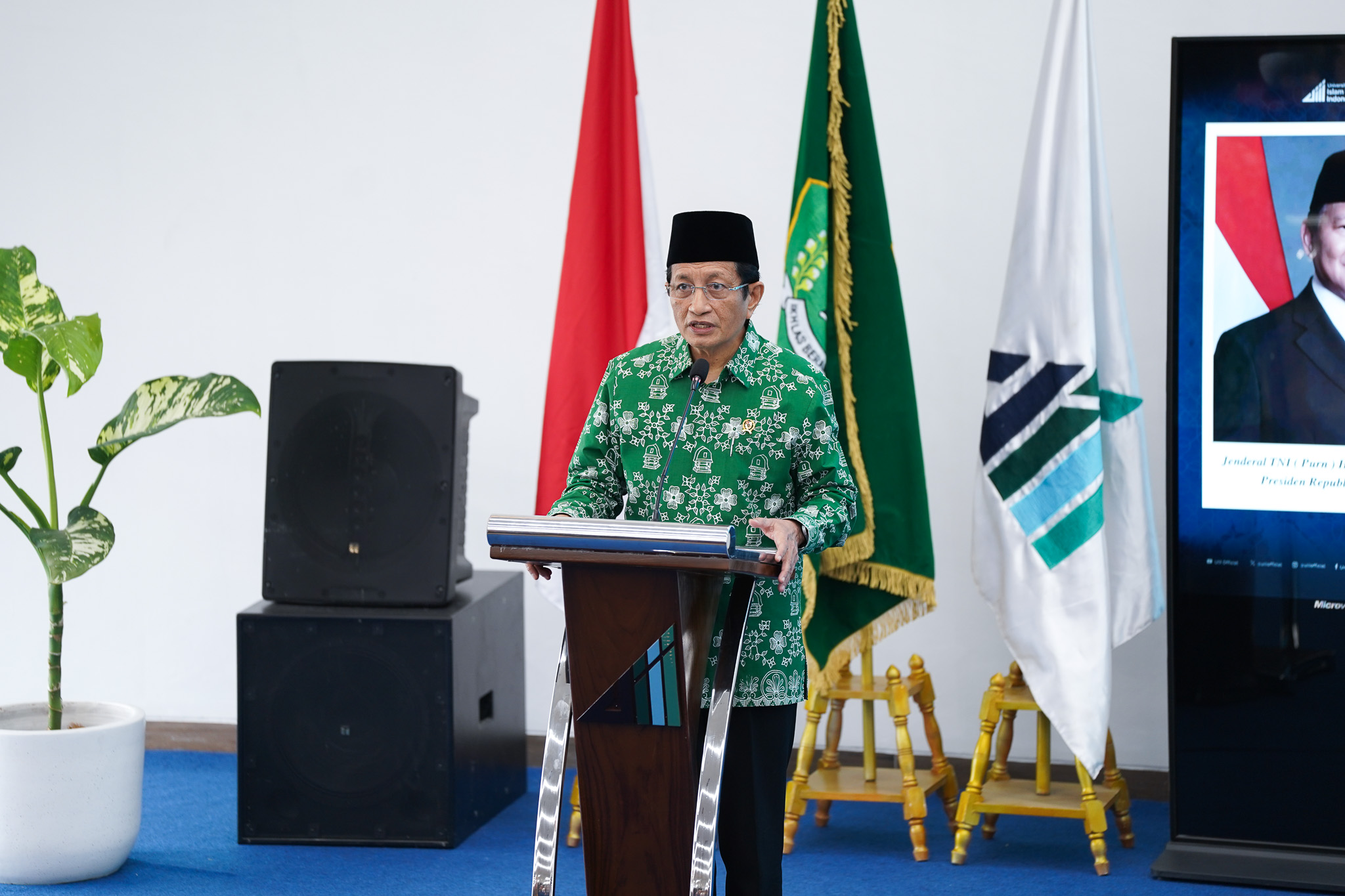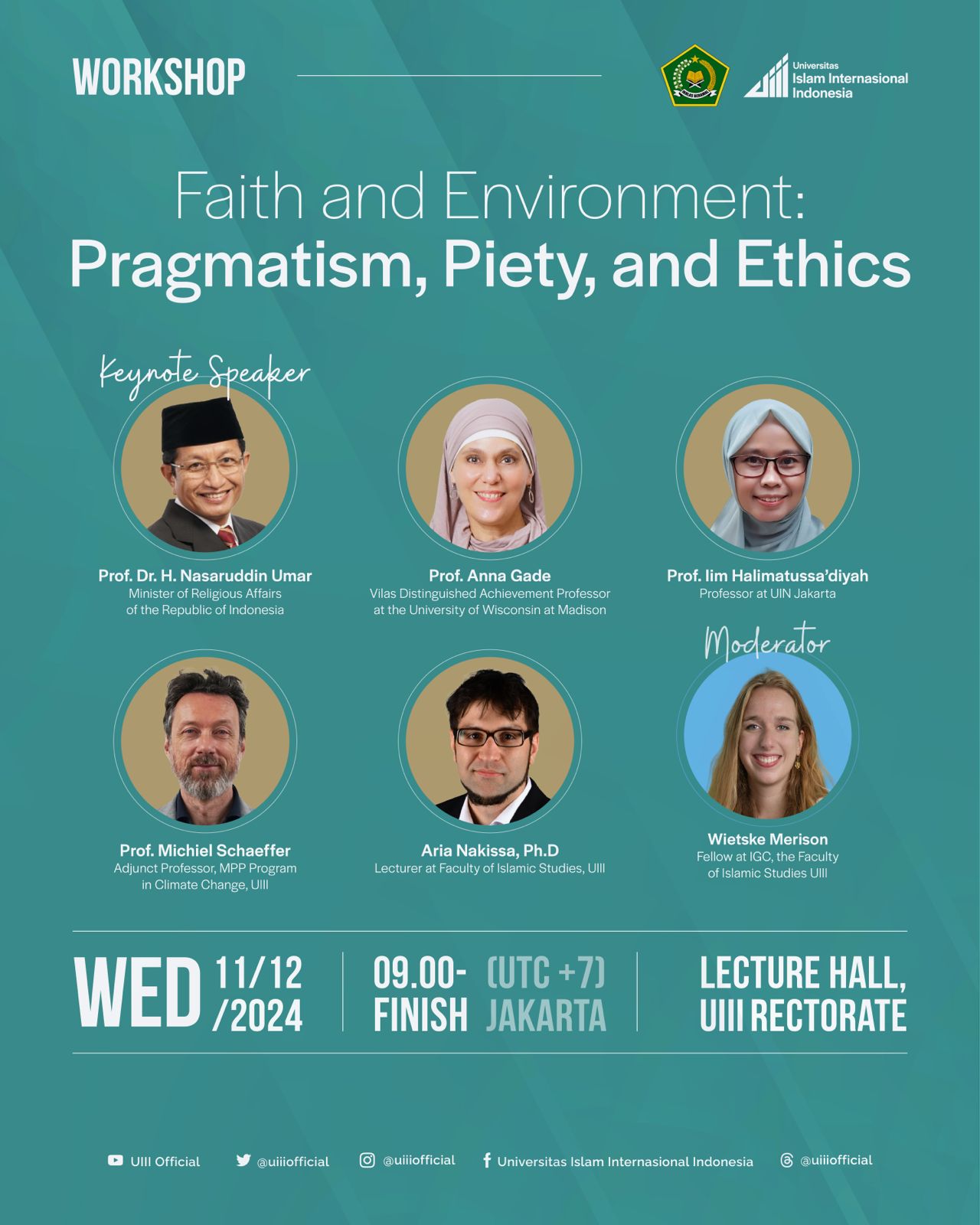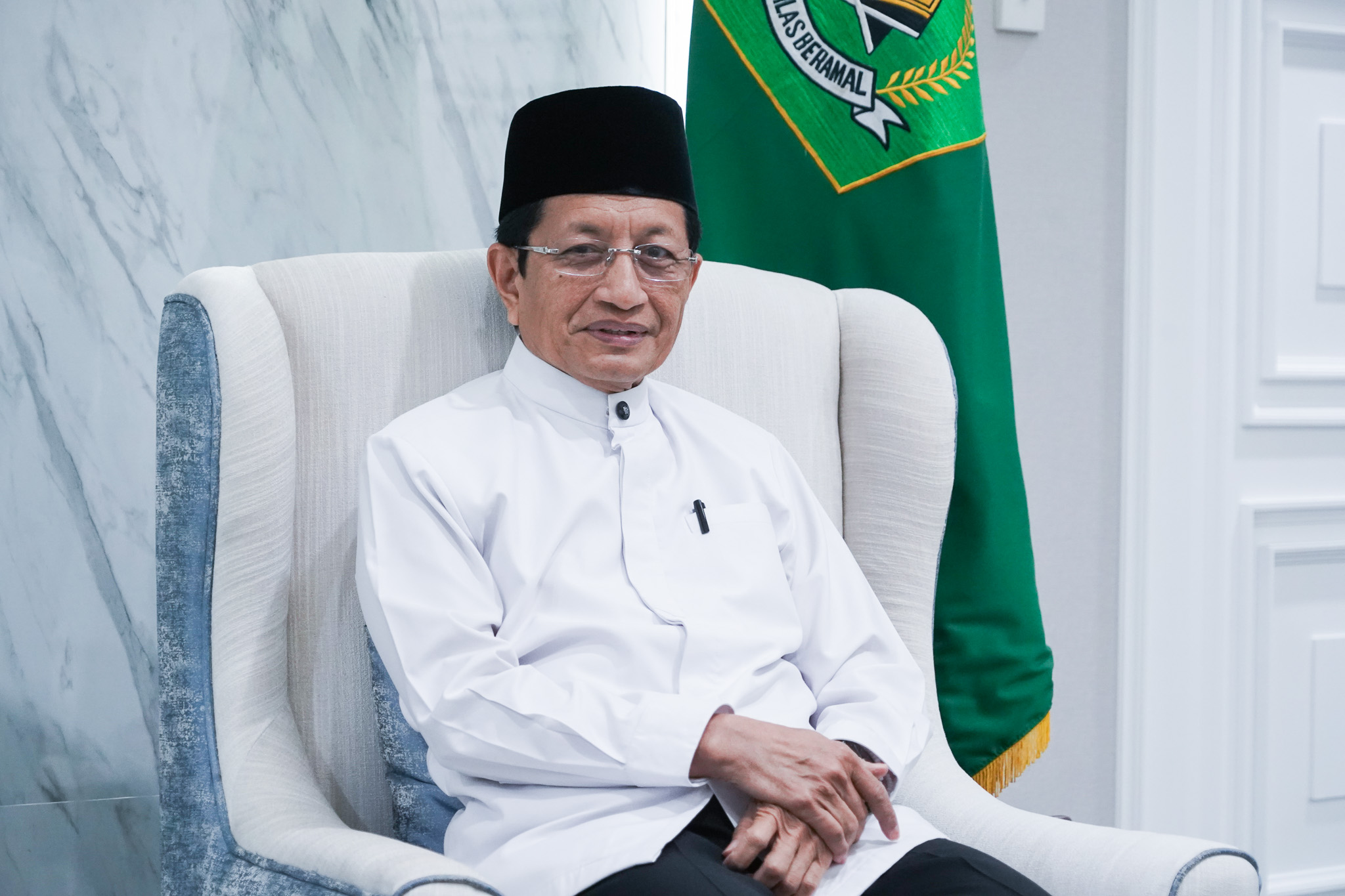Faith and Environment: Indonesia’s Minister of Religious Affairs Calls for a Sacred Commitment to Nature
December 11, 2024Contributor: Dadi Darmadi | Photo: Achmad Jatnika

DEPOK, Indonesia — In a packed seminar hall at the Indonesian International Islamic University (UIII), Professor Nasaruddin Umar, Indonesia’s Minister of Religious Affairs, made an impassioned plea for a deeper exploration of religious teachings as a solution to one of humanity’s most pressing challenges: the environmental crisis.
“Faith has always been a wellspring of guidance and ethics,” Prof. Nasaruddin said, addressing an audience of students, faculty, and researchers during the event titled "Faith and Environment: Pragmatism, Piety, and Ethics" on Wednesday, December 11, 2024. “The more we delve into the sacred texts, the better equipped we are to preserve the environment in all its sanctity.”
The seminar, organized by the Center of Islam and Global Challenges (IGC), UIII’s Faculty of Islamic Studies, focused on the intersection of spirituality and environmentalism, an area Prof. Nasaruddin believes has been underexplored despite its critical relevance. Climate change, he noted, now claims over a million lives annually, disrupting not just ecosystems but the very harmony of human existence.
A Tale of Two Lives: Living with Nature
To illustrate his point, Prof. Nasaruddin shared a poignant story comparing the experiences of a highly educated plant science professor and an uneducated farmer. The professor, with his wealth of knowledge, managed to grow a tree to maturity, but it bore no fruit. In contrast, the farmer—who never finished primary school—successfully cultivated a tree that thrived and bore abundant fruit.
“The difference,” Prof. Nasaruddin explained, “lies in their relationship with nature. The farmer, though lacking formal education, lives closely with the land. “Alam seolah membuka dirinya,” he said in an Indonesian expression, that nature reveals itself to him because of this connection. Meanwhile, the professor, despite his expertise, is distant from nature, and so nature distances itself from him.”
This story, he said, underscores the importance of fostering a sense of harmony and respect for the natural world. “Those who live in intimacy with nature often possess an intuitive understanding of its rhythms, far surpassing even the most credentialed experts who lack that closeness.”
A Sacred View of Nature
Prof. Nasaruddin challenged conventional perceptions of humanity’s relationship with nature, emphasizing that the Earth is not a mere resource to be exploited but a sacred trust from God. “This universe is a manifestation of the Divine,” he said. “If God is Holy, then this Earth is also holy. If God is Sacred, then the environment must be treated as sacred.”
Drawing on Islamic teachings, he urged the audience to view nature not as a servant to human desires but as a partner in sustaining life. He pointed to traditional communities, which often revere the natural world as a friend rather than a subordinate, as models of sustainable living.
Bridging Faith and Ecology
The Minister’s message was clear: religious leaders and institutions must take a central role in promoting environmental awareness. “Religious figures should expand their understanding of environmental stewardship so that faith communities can contribute more actively to protecting the Earth,” he said.
Prof. Nasaruddin’s call to action resonated deeply with the audience, particularly his assertion that environmental degradation stems from a fundamental disharmony in humanity’s relationship with nature. “Rain that should nurture us now destroys, winds that should cool us now devastate,” he explained. “This is because we have treated nature as an object, rather than respecting its sanctity.”
Instead of focusing solely on repairing the damage caused by environmental crises, Prof. Nasaruddin proposed addressing the root cause: human behavior. He advocated for a shift in mindset—one that aligns humanity’s actions with the ethical and spiritual principles found in all major religions.
Toward a Harmonious Future
As climate change continues to exact a heavy toll worldwide, Indonesia faces unique challenges as an archipelagic nation vulnerable to rising sea levels and natural disasters. Yet, Prof. Nasaruddin believes that Indonesia’s rich spiritual traditions and religious diversity position it as a leader in the global movement for environmental ethics.
“The Earth is entrusted to us by God, not to be abused but to be revered and nurtured,” he reminded the audience. “If we embrace this sacred duty, we can ensure a harmonious and sustainable future for generations to come.”
The seminar closed with a renewed sense of purpose among the participants, many of whom are now exploring ways to integrate faith-based approaches into their research and activism. For UIII, this event marked another step toward fulfilling its mission as a center of Islamic scholarship with a global impact. []

- UIII Gears Up for Master of Finance on Sustainable Finance Accreditation Visit
- UIII Embraces a Green Ramadan: A Month of Worship and Sustainability
- UIII Evaluates Quality Assurance System, Plans For New Study Programs
- Lost at Sea: UIII’s Dr. Nia Deliana Reveals the Silent Crisis of Sea Refugees
- The Qur’an in a Changing World: Prof. Sahiron Syamsuddin’s Visionary Lecture at UIII
- A Shared Mission of UIII and ICRC in Advocating International Humanitarian Law
- Hartford International University for Religion and Peace Signs MOU with UIII for Future Academic Partnership
- Professor Dian Masyita Honored as a Changemaker in Empowering Communities
- Bridging the Archipelago and the Nile
- Upcoming International Conference: Faith, Science, and the Future of Environmental Action


